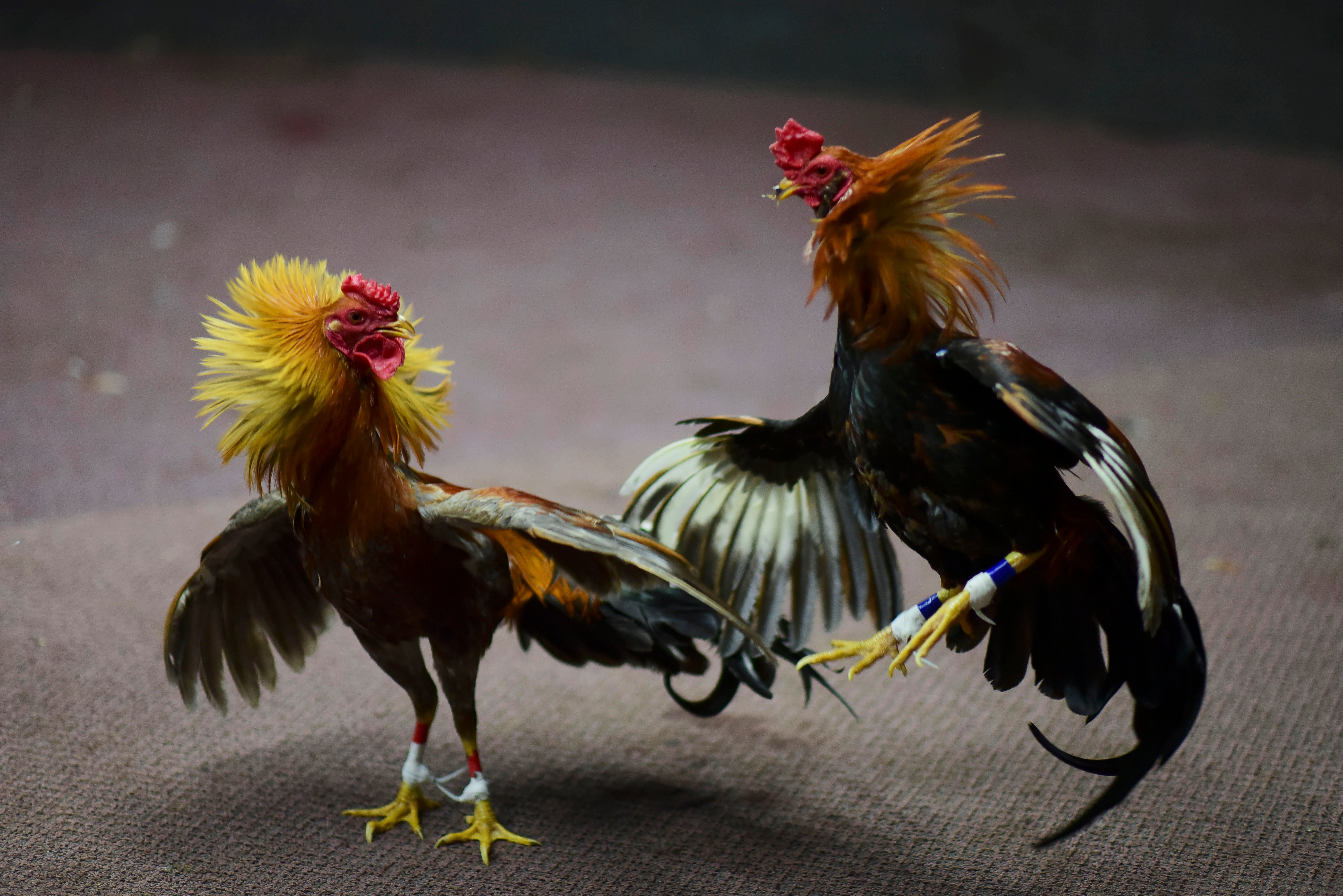Fatal Hawaii shooting shows dangers of popular cockfights
Police in Hawaii have vowed to step up illegal gambling enforcement after one of the most serious shootings in state history called attention to the dangers that come with cockfighting

Police in Hawaii have vowed to step up illegal gambling enforcement after one of the most serious shootings in state history called attention to the dangers that come with cockfighting, which has deep roots in the islands and remains popular despite being illegal.
The shooting early Saturday in a rural community more than 30 miles (48 kilometers) from downtown Honolulu left a man and woman dead and three others with gunshot wounds. The Honolulu medical examiner’s office as of Tuesday had yet to release the names of the dead — both of whom were taken in private cars to a hospital — and police had yet to make any arrests but said they were searching for two suspects.
Authorities say investigating cockfights is difficult in part because they are highly organized events on private property and their illegal nature and the large amount of money wagered means they often have links to organized crime. The clandestine fights happen all over Hawaii, usually on large, remote properties shrouded by brush and accessible only by dirt roads, like in Waianae, where the weekend shooting took place.
“Neighbors are also reluctant to get involved for fear of retaliation,” Honolulu Police Chief Joe Logan said in a statement.
Despite being illegal in Hawaii since 1884, the fights between roosters with blades affixed to their legs have remained a part of life in the islands, especially among the state's large population of Filipinos, who are credited with bringing the practice from the Philippines, where it was introduced by Spaniards. Many cockfighting fans claim the blood sport is part of local Hawaii culture.
“People that are attendees are local, locally based, and have been doing it for generations,” said former Maui police chief Gary Yabuta, now executive director of the Hawaii High Intensity Drug Trafficking Area. “A saying among chicken fighters is, ‘It’s in my blood.’”
But Saturday's shooting, which police say started with an argument at the end of a cockfight, has some saying enough is enough and cultural claims should no longer be used to excuse the illegal fights that happen every weekend.
“People say, ‘I grew up with it. It’s a cultural thing. Papa had chickens ... we went to chicken fights, that’s how we made our money,’” said Patty Kahanamoku-Teruya, chair of the neighborhood board in the area of the shooting. “It’s not a cultural right. It’s illegal. Period.”
Yabuta said his program, which helps local and federal law enforcement collaborate in the fight against illegal drugs, is concerned about cockfighting because it’s wrapped up in organized crime and has links to drug-trafficking. He notes that the fights often attract hundreds of people placing bets totaling more than $100,000.
“It’s something that is so huge and so popular in Hawaii that it really can’t be controlled by law enforcement,” he said.
The popularity of cockfighting extends far beyond Hawaii and is truly a global industry, said Wayne Pacelle, president of Animal Wellness Action.
“It was started by the Romans and the Greeks 3,000 years ago. And it spread all over the world with colonialism,” he said.
After arriving in Hawaii, the sport has flourished in many areas, including urban parts of the islands, such as Kalihi, where many fighting birds are raised, said state Rep. Sonny Ganaden.
Crowing roosters are “part of the sights and sounds of Kalihi,” he said of the neighborhood that’s home to many Filipinos and Pacific Islanders.
“Kids will grab a chicken and get them to fight each other,” he said.
Cockfighting has been illegal in all 50 states, but hadn't been illegal in U.S. territories until 2019, when a law signed by former President Donald Trump banning all animal fighting went into effect.
The argument that cockfighting is a cultural practice has been used in lawsuits challenging the ban, but with little success. The U.S. Supreme Court turned away a challenge to the federal law brought by individuals and organizations that argued Congress exceeded its power in applying the ban to Puerto Rico.
Some in Hawaii worry that violence linked to cockfighting will grow more volatile in a state that previously had largely escaped the scourge of gun violence seen elsewhere in the U.S.
Saturday's shooting was among the worst since 1997, when seven workers were shot and killed at a Xerox Corp. warehouse. Other shootings that grabbed headlines were a man who killed a taxi driver and a couple taking photos at a Honolulu scenic lookout in 2006 and a highway shooting spree that left one woman dead and two others injured in 2011.
Chris Marvin, a Hawaii resident with Everytown for Gun Safety, said these types of shootings will increase with the proliferation of guns in the islands.
Data from the Hawaii attorney general’s office says the number of number of firearms registered annually in Hawaii climbed 319% from 2000 through 2021.
“We are going to start to replicate the trends that we’ve seen in the mainland,” Marvin said. “And in the rest of the country, there is more than one mass shooting per day. We don’t hear about all of them."
___
Associated Press reporter Audrey McAvoy contributed to this report.
Bookmark popover
Removed from bookmarks